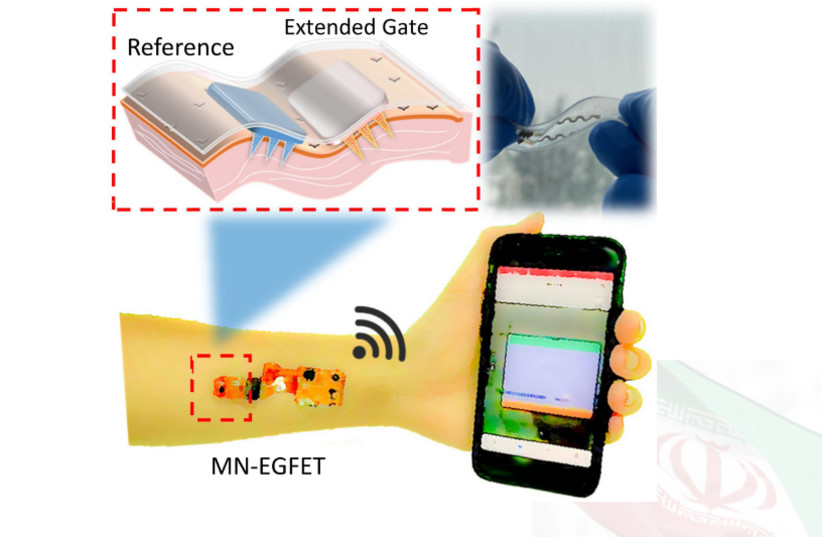Israel’s healthcare system is under unprecedented strain due to the ongoing corona pandemic, which has forced hospitals to work understaffed and overfilled with no real end in sight. Although there were a brief few months when cases reached almost zero and all corona hospital wards were closed, this respite was cut short by the arrival of the Delta variant, followed almost immediately by Omicron.
The healthcare system has been dangerously underfunded for several years, with fewer available hospital beds than the OECD average. More than one strike has been organized over underfunding and the lack of support for hospital staff. In July, an estimated 13,000 hospital workers walked out from 30 different medical centers across the country in protest of the unreasonable burden being placed on them.
Multiple hospitals including Shaare Zedek Medical Center in Jerusalem, Sheba Medical Center in Tel Hashomer and Samson Assuta Hospital in Ashdod are all currently operating at over 100% capacity, with several others at near capacity. Additionally, 4,264 hospital workers are currently self-isolating, including 626 doctors and 1,373 nurses.
All this has led to further understanding of the need for smart technology that allows for continuous and real-time patient care without further pressure being placed on healthcare workers.
One such device has recently been developed by the Technion-Israel Institute of Technology. The information regarding it was published in a peer-reviewed study in the Advanced Materials journal.

The device includes a new smart micro-needle system that works to detect serious underlying medical issues in the wearer as they go about their day-to-day life.
The research team, led by Professor Hossam Haick, postdoctoral fellow Dr. Youbin Zheng and PhD student Rawan Omar of the Wolfson Faculty of Chemical Engineering and the Russell Berrie Nanotechnology Institute, focused on developing a smart micro-needle that is fixed to the patient’s skin in order to constantly monitor their medical condition, sending the necessary data back to the doctor overseeing their health.
“Unlike standard medical needles, which are inserted into the skin up to the blood vessels and therefore cause pain and bleeding, the smart micro-needles are short and thin and cross only the first layer of skin,” the researchers explained.
As a result, the needles are not painful to insert or to keep in for an extended period of time. Despite their short length, they are still able to monitor important physiological indicators in the patient’s body, because they are still long enough to reach the interstitial fluid – the body fluid between blood vessels and cells – that is directly under the skin’s surface.
Various different biological components can be measured in the interstitial fluid, including sodium, glucose and pH level.
Two of the main medical issues that this new medical system can monitor are hypernatremia and hyponatremia, as both are related to the sodium levels in the patient’s blood, which can be detected in the interstitial fluid.
Sodium plays a key role in the body, as it helps maintain normal blood pressure and supports the work of the nerves and muscles, as well as regulating the body’s fluid balance.
HYPERNATREMIA IS overly high sodium levels, and hyponatremia is low sodium levels. Symptoms of hypernatremia include restlessness, lethargy and irritability, to name a few. Hyponatremia can present itself in many ways including personality changes, nausea and low blood pressure. Thus monitoring the sodium level in people exhibiting these symptoms can be a quick way to eliminate other possible causes.
If left untreated, both of these conditions can cause serious medical issues such as seizures or loss of consciousness, so catching them early can be crucial.
Once the micro-needle has been inserted, it constantly monitors the patient’s condition. If it detects either of the above issues or various other ones that it works to monitor as well, it transfers the findings wirelessly to the patient’s doctor via Internet of Things (IoT) technology.
IoT refers to physical objects, such as the smart micro-needle, that are embedded with sensors, processing ability, software and other technologies that allow them to exchange data with other systems over the Internet.
Is the smart micro-needle actually able to deliver the same medical care and attention as an in-person doctor?
Yes, said Haick. Because the needle continuously monitors the patient, it can allow for early detection of various disorders that if left undetected, can otherwise lead to heart and kidney disease, infectious diseases and more. It also provides medical information at a faster rate than traditional diagnostics, such as blood tests that do not provide easy-to-access immediate results.
But how does this help with reducing the burden on the healthcare system?
“As of now, detection and monitoring of sodium levels in the human body is carried out by means of laborious and bulky laboratory equipment, or by offline analysis of various bodily fluids,” the study’s author explains. However, the use of the smart micro-needle, which conforms to the skin and is minimally invasive and flexible, allows the patient to continue about their day as normal, as well as give their doctor the necessary time to attend to more patients.
The research team envisions the smart needle becoming an essential diagnostic tool used by healthcare systems in the future. To make this possible, they have worked to develop it and make it as comfortable for the wearer as possible.
“To adapt the technology to daily life,” Haick said, “we have developed a unique Band-Aid made of a flexible and soft polymer that stretches and contracts along with the skin, and therefore does not interfere with any action whatsoever.
“Since it is important for us that the system is available to everyone, we made sure to use relatively inexpensive materials, so the final product will not be expensive. The technology we have developed represents a leap forward in diagnosing diseases and continuous physiological monitoring at home and in the clinic.”
